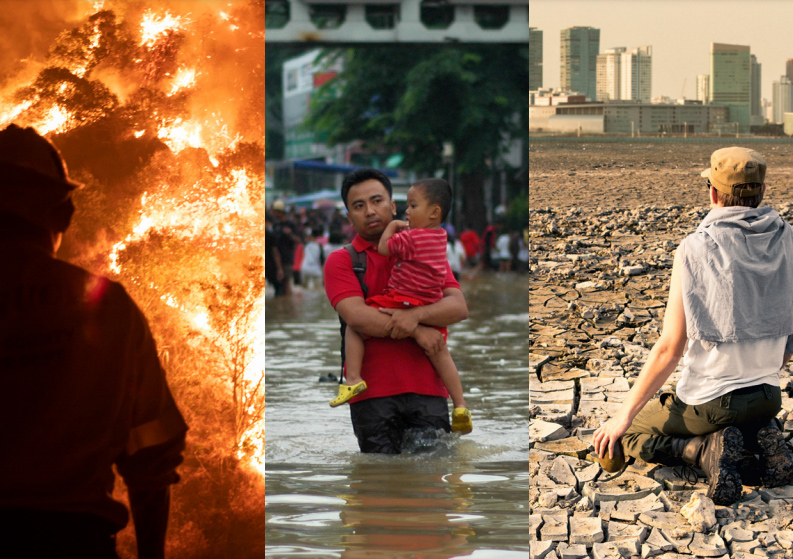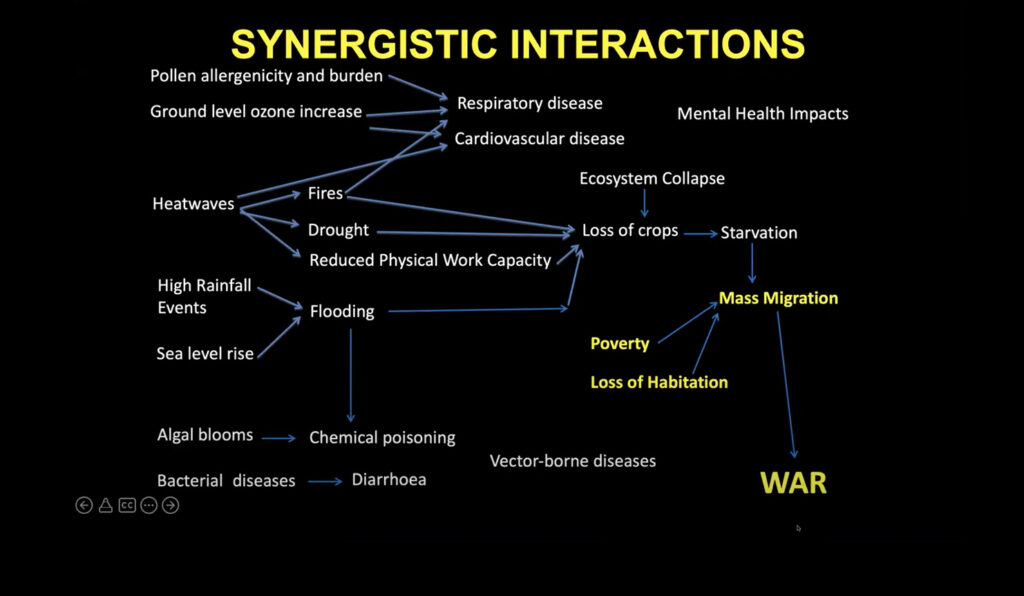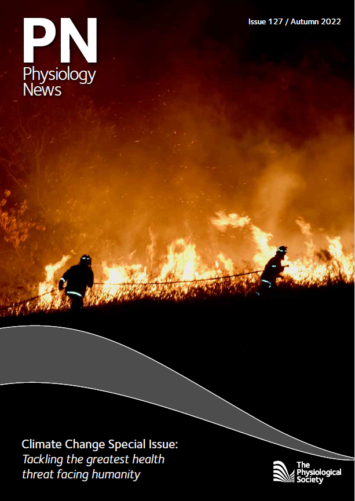
Physiology News Magazine
Climate Change: Research Gaps and Policy Priorities
Meeting Report
Events
Climate Change: Research Gaps and Policy Priorities
Meeting Report
Events
https://doi.org/10.36866/pn.127.37
Shania Pande
Policy Officer, The Physiological Society
Online webinar held on 15 June 2022
“Climate change is the single greatest threat to a sustainable future but, at the same time, addressing the climate challenge presents a golden opportunity to promote prosperity, security and a brighter future for all.” – Ban Ki-Moon, Former Secretary-General of UN.
Physiology is an essential part of the scientific response to mitigating as well as adapting to climate change. Held on 15 June 2022, the webinar, chaired by Professor Mike Tipton from the University of Portsmouth, UK brought together over 100 physiologists from across the world, along with speeches from organisations such as the Intergovernmental Panel on Climate Change (IPCC), Wellcome, and Lancet Countdown on Health and Climate Change. The key aims of this meeting were to understand the major physiological research gaps and set priorities for public policy. The webinar can be found here: physoc.org/climatechange

The webinar comprised three sessions followed by panel discussions after each session. The speakers highlighted the breadth of ways in which physiology can contribute to mitigating climate change such as altering people’s behaviour so that they are able to adapt to extreme heat environments without relying on air conditioning or by developing sustainable diets that meet the required nutritional standards. Physiology also plays a vital role in adapting to climate change through the development of countermeasures such as masks and PPE kits and safe working practice guidelines for workers in extreme environments.
The webinar highlighted the need for interdisciplinary collaboration between physiology and other sciences to ensure that the strategies developed are implemented on the ground and help protect the most vulnerable from the devastating impact of climate change. It is also vital we consider the health of our planet as a whole and not just human health. This can be done by research into the workings of different physiological systems in plants and animals in response to changes in temperature, air pollution, and other weather events.
This meeting report captures some of the key calls to action from two of the meeting’s keynote speakers: Professor Hugh Montgomery from University College London and Lancet Countdown on Health and Climate Change, and Dr Hans-Otto Portner from the Intergovernmental Panel on Climate Change of the United Nations.
Professor Hugh Montgomery Professor of Intensive Care Medicine, University College London and Lancet Countdown on Health and Climate Change
The direct health impacts of climate change pose an existential threat to humanity. Progressive heatwaves produce fires and dust, increasing ground-level ozone, which worsens respiratory and also cardiovascular health. Heatwaves themselves cause drought and reduce physical work capacity. Conversely, high rainfall events and rise in sea levels causes flooding. These adverse events lead to the collapse of ecosystems, which ultimately reduces crop production resulting in mass starvation. Algal blooms and flooding cause chemical poisoning and increase bacterial diseases.
Further, changes in the territory and breeding pattern due to climate change affect vector borne disease patterns. Physiology not only has a role in the mitigation of climate change from reducing greenhouse gases to changing diets to reduce methane emissions, but also in understanding how we cope with the complex changes in our physiological environment.

Dr Hans-Otto Pörtner, Co-Chair, Working Group II, Intergovernmental Panel on Climate Change, United Nations
The recent IPCC Working Group II report on Impacts, Adaptation and Vulnerability. Physiological knowledge has shown that taking urgent climate action needs to be a priority. Climate-resilient development has human health and wellbeing at its core, but also considers the importance of equity and justice. It also draws on ecosystem and planetary health, highlighting the need to take a whole-systems approach to climate change. We need to develop an improved and quantified understanding of how the system as well as its components work and we are just one of those components. We do not know enough about mechanisms, cause and effect, warming and limits concerning the vulnerability of species, biodiversity, humans, and understanding the when and why of biological and societal tipping points in response to ecosystem degradation. There is also a need to consider the scope for and limits to adaptation. On the species side it is evolutionary adaptation that involves the modulation of physiological mechanisms.

Following the webinar, The Physiological Society has committed to work with other climate-focused organisations to push national governments to prioritise human health as part of the COP27 agreements, which will be published following the meeting of world leaders in November 2022. You can read our latest report: The Climate Emergency: Research Gaps and Policy Priorities here: physoc.org/climatechange
